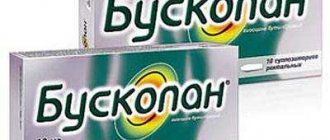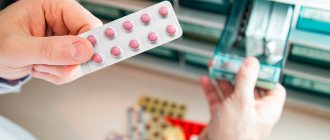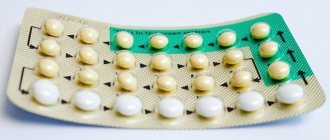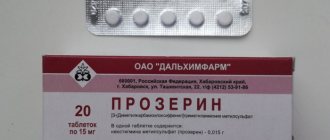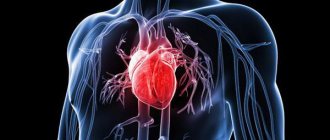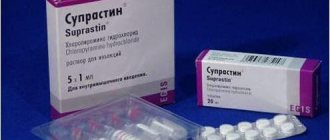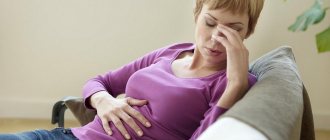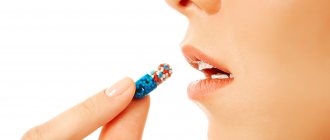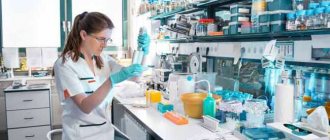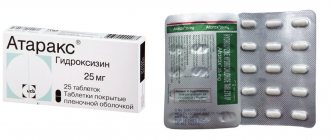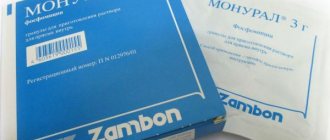What is atrial fibrillation?
When the normal heart rhythm is disrupted, the muscle fibers lose the ability to work synchronously, they only “run around” randomly, twitch, and seem to flicker. This chaotic contraction of the atria and ventricles is called atrial fibrillation.
It is not for nothing that the disease is translated from the Latin “delirium cordis” as “madness” of the heart. The disease is dangerous and, unfortunately, common, especially for people over 45-50 years old.
With atrial fibrillation, we are talking about chaotic and asymptomatic contraction of muscle fibers with periodic freezing of the heart rhythm. Sometimes they are minimal, and the patient cannot always catch them on his own. Sometimes they are pronounced.
Therefore, the most important thing is not to miss the onset of the disease and make the correct diagnosis in time.
Reasons and forms
There are paroxysmal and permanent forms of atrial fibrillation. The first of these is a sudden disturbance in heart rhythm, which can last from 15-20 minutes to several days or even weeks. With proper correction, it is completely treatable.
The second form is characterized by a sign of permanent heartbeat disturbance, which does not return to normal rhythm even with long-term and proper treatment. In this case, according to doctors, the most important thing is to bring the heart rate to normal levels.
Because every attack of atrial fibrillation is a high risk of thrombosis. And the more such episodes, the higher the danger for the patient. The disease is also terrible because it affects the vessels of not only the brain, but also the heart muscle and kidneys.
The main cause of the development of the disease is hormonal disorders. This is especially true for patients with thyrotoxicosis (hyperthyroidism), when quite a lot of hormones are released that increase the heart rate.
In women, such rhythm disturbances occur during the premenopausal period, associated with hormonal imbalance in the body.
In addition, inflammatory diseases of the heart muscle itself—bacterial endocarditis, left ventricular hypertrophy, as well as acute stressful situations, prolonged fatigue and overload—can contribute to the development of atrial fibrillation.
Other means
Medicines in this group differ in their principle of action from other antiarrhythmic drugs.
Panangin - based on potassium and magnesium - is indicated for cardiac arrhythmias associated with electrolyte imbalances. As a rule, this is a lack of microelements.
The initial dosage is 1-2 tablets 3 times a day. After 3 weeks, treatment is adjusted and the dose is reduced to 1 tablet 3 times a day.
While taking Panangin, dizziness and nausea are possible. The drug is prohibited for kidney disease and atrioventricular block.
- Asparkam is a medicine for arrhythmia with a budget price. It is a complete analogue of Panangin.
- Cardiac glycosides – based on plant materials. Extracts of lily of the valley, foxglove, and strophanthus are used. They are classified into one group by the presence of a cyclopentane-perhydro-phenanthrene ring. This compound has a stimulating effect on the muscular structures of the heart.
First aid
At home, it is difficult to determine the exact nature of the attack: is it atrial fibrillation or another disease. You need to immediately measure your blood pressure and count your pulse.
If, for example, the pulse is 150 or 180, and the pressure is 130 to 80, you can give 1/4 tablet of anaprilin , 2 tablets of no-shpa , or 4-10 tablets of glycine (depending on weight: at the rate of 1 tablet per 10 kg of weight), or drop 35 drops of any pharmaceutical sedative: valocordin, tincture of valerian or motherwort. These are proven medications that have a quick effect.
Then you need to lay the patient down, place 2 pillows under his head to ensure the flow of blood from the heart. In this case, the head should be raised, and the legs, on the contrary, should be lowered, and the patient should be in a relaxed state.
In case of a hypertensive crisis, the patient can be given 1 tablet of aspirin, nitroglycerin or analgin, which must be chewed.
The sooner you give the patient aspirin, the lower the risk of blood clots. The drug thins the blood very effectively and is used as an emergency drug for both patients with heart attacks and all cardiac patients.
After diagnosis
If you are concerned about an abnormal heart rhythm, you must undergo medical examinations: ECG, echocardiography and Holter ECG .
Only based on an examination of the patient and diagnostic results, a cardiologist will be able to prescribe a course of treatment for a disease such as arrhythmia. There are many causes and types of rhythm disturbances. Arrhythmia can be congenital or acquired, arising as a result of various unfavorable factors. Its types: bradycardia, tachycardia, extrasystole and atrial fibrillation. Therefore, they take pills for this pathology only as prescribed by a doctor.
Treatment of cardiac arrhythmia is based on reducing the signs of the disorder, eliminating its consequences or complications, as well as improving the quality of life. It is necessary to consider how to treat cardiac arrhythmia: with medications, diet or alternative methods.
Most often, doctors prescribe medications to treat arrhythmia. The cause of the condition may be:
- hypertension;
- congenital and acquired heart defects;
- diabetes;
- brain injuries;
- thyroid diseases;
- frequent stress;
- alcohol abuse.
Therefore, there is no treatment for this disease that is the same for everyone.
Only a doctor can determine which remedy is best to prescribe and what to drink for a patient with arrhythmia.
The key to successful treatment of pathology lies in effective and long-term therapy, eliminating the cause that caused it.
Hospitalization and diagnosis
Often, at the first attack of atrial fibrillation, the patient is immediately hospitalized. Why?
Firstly, there is a great danger of blood clots, and secondly, it is necessary to find out the cause of the disease. And to do this, you need to carry out a large number of different tests and examinations, which are better done in a hospital setting, rather than sending a sick person to clinics and specialists.
Thirdly, against the background of atrial fibrillation, various changes in blood pressure can occur, both upward and downward, during which a person may simply lose consciousness.
Immediately after hospitalization, he is given a cardiogram, which reveals a clear and accurate picture of the disease. The doctor can make a diagnosis from the first film. However, the causes of atrial fibrillation still have to be clarified.
To slow down the heart rate, the patient is given drugs intravenously, and not in tablet form. If necessary, electropulse therapy is performed.
As a rule, the patient is left in the cardiac intensive care unit for the first day under heart rate monitoring: sensors are installed around the clock, their readings are immediately displayed on the screen. In addition, the patient must be administered one of the heparin blood thinning drugs.
What medications help with an attack?
If arrhythmia occurred repeatedly in a person, the doctor should have prescribed treatment and given a list of effective medications that help quickly bring the heartbeat back to normal. To stabilize heart rate, the following medications are used:
- "Digoxin";
- "Verapamil";
- "Adenosine";
- "Flecainide".
Digoxin helps bring the patient's heart rate back to normal.
The treatment regimen and dosage of drugs are determined by the doctor, taking into account the individual characteristics of the course of the disease, the type of arrhythmia, and the patient’s age. It is prohibited to use such medications at your own discretion.
To reduce the number of attacks, it is important to take medications regularly and strictly follow the doctor’s recommendations
Treatment
The selection of antiarrhythmic drugs should be carried out in a hospital setting by a cardiologist based on the results of all studies performed: echocardiography, exclusion of thyroid pathology, determination of hormonal levels, regular monitoring of blood pressure, biochemistry, number of heartbeats, and so on.
These may be: amedarone, sotalol, sotalex, cordarone, allapinin, atenolol, novocaine amide, mexiletine . Only a small part of antiarrhythmic drugs is presented here. One medicine did not help, another is prescribed, a third, and so on until a positive effect is achieved.
Anaprilin is used only as an aid and is not suitable for continuous use. Sometimes beta blockers are prescribed, such as Concor . In some cases, radiofrequency ablation is used to treat atrial fibrillation.
Using this technique, a small area of tissue that causes pathological frequent excitation of the heart muscle is eliminated. This is achieved by exposing the tissue to radiofrequency signals that have a damaging effect.
As a result, the additional pathway of impulses is interrupted, while at the same time the normal paths of impulses are not changed, and the heart contracts at its normal rhythm, with a frequency of 60-90 beats per minute. This procedure is performed under local anesthesia in the hospital's cardiology department.
Mechanism of occurrence
There are two main types of tachyarrhythmia - sinus and paroxysmal. The latter, in turn, is divided into several more groups.
The first form develops as a result of disruption of the natural pacemaker, a special accumulation of cardiomyocytes. They are capable of independent, autonomous excitation without external stimuli.
The sinus node generates a bioelectric impulse. It passes through special fibers, bundles and moves throughout the myocardium, causing it to contract. The blood is expelled, the body is nourished.
As a result of one or another disorder (weakness of the pacemaker, blockade due to intoxication and other processes, inflammation, rheumatism, tumors), a violation of signal generation occurs.
Hence the weakening of cardiac activity. At the first stage, the body seeks to compensate for the deviation, sending strong impulses so that the organ works more actively. As fatigue occurs, tachycardia gives way to the reverse process, and efficiency decreases.
The paroxysmal form is associated with the same reasons, but the outcome is different.
Blocking of conductive bundles and excessive stimulation lead to disruption of the impulse movement. It does not reach the ventricles or atria.
As a result, each chamber begins to shrink at its own pace. Such chaos in the work of the heart ends with a sharp increase in the number of movements per minute; these are not full-fledged beats; most are recorded only through electrocardiography.
Attention:
Paroxysmal tachyarrhythmia is considered a more dangerous type of disorder. Since the probability of cardiac arrest and acute ischemia is approximately 60-70% higher, the mortality rate is also higher. If this occurs, it is recommended to call an ambulance.
Green pharmacy
It is not only possible, but also necessary, to use herbal medicine and folk recipes for atrial fibrillation for medicinal purposes, but only as an aid, which should not replace the main treatment prescribed by the doctor.
Tinctures of valerian, motherwort, hawthorn, and peony are successfully used as sedatives.
Mix them in equal proportions and drink 20-30 drops per 1/3 glass of water with the addition of 1 teaspoon of honey 40 minutes before bedtime. Thanks to this recipe, sleep and the general neurogenic state of a person improves.
You can prepare an infusion yourself, both from motherwort and from valerian or hawthorn: 2 tbsp. Brew tablespoons of the plant with 1 cup of boiling water, leave for 15-20 minutes, strain. Dilute 200 ml of boiling water and drink 1/2 cup throughout the day.
As for rose hips, I would not recommend it for frequent use, since it contains a large amount of ascorbic acid, which thickens the blood.
You can make another recipe like this
Mix equal parts of dry motherwort herb and dried hawthorn fruits crushed in a coffee grinder. 1 tbsp. Brew a spoonful of the mixture in a thermos with 300 ml of boiling water, leave to infuse for 2-3 hours, strain the finished infusion. Take 100 ml three times a day 20-30 minutes before meals, the course is long.
Decoction of a mixture of medicinal herbs
The following medicinal combination consists of adonis herb, calendula flowers, mint and sweet clover, chicory root and rose hips. Together, these plants have a positive effect on the nervous system in such a way that the rhythm of heart contractions returns to normal and remains within 60-90 beats per minute.
They also improve blood circulation in the heart, enriching it with oxygen, calcium and potassium ions. To prepare the mixture, take all ingredients in equal quantities. Grind dry herbs, roots and fruits in a coffee grinder.
Pour 2 tablespoons of the mixture into 1 liter of boiling water, boil in a closed saucepan for 10 minutes. Then, without straining, pour into a thermos and leave to infuse for 6-8 hours. Take 1/2 cup during the day before meals.
When treating atrial fibrillation with folk remedies, improvement occurs within 2 weeks. However, you should not stop drinking herbal teas, otherwise the attacks may return.
Experts say that the minimum course of treatment is 12 months, and preferably 1.5-2 years. During this period, you can alternate various herbs and take infusions twice a year, in spring and autumn, for 2 months.
Prevention
Patients with atrial fibrillation should be observed and visit a cardiologist or therapist at least once every 3 months to monitor ECG readings.
In addition, the patient himself must constantly monitor his heart rate. The rhythm frequency should be from bO to 90 beats per minute, everything higher must be corrected.
If, for example, a patient's heart rate is above 100 beats, he does not need to wait 3 months. The slice should be seen by a cardiologist. The main goal in the treatment of atrial fibrillation is to transfer it from the tachyform (when the number of heartbeats is 130,140,150 beats) to the norm form from 60 to 90 beats
The fewer heart contractions, the lower the load on the heart muscle, which does not wear out so quickly. A pulse of 70 beats per minute is considered ideal, when the heart muscle rests more, relaxes, and its blood flow improves.
Patients with atrial fibrillation should not forget about the prevention of all diseases that provoke the disease. And also reduce your weight, if it is elevated, to reduce the load on the heart, and stop smoking.
In any stressful situations, sedative therapy is indicated. The prognosis of the disease is favorable if the doctor’s recommendations are followed.
Nutrition
Patients should adhere to a salt-free diet. It must be remembered that all stimulating spices, including garlic and pepper, can provoke an attack. I would like to emphasize that it is useful to include foods rich in vitamin D3 in the menu, in particular, cold sea fish with a high content of omega-3 acids (herring, mackerel, salmon).
When cooking, you can sprinkle it with lemon juice. There is no need to add salt to prevent water retention in the body, which, in turn, can lead to an increase in circulating blood to the heart muscle.
In addition to fish, include more greens in the menu (cilantro, parsley, dill). As well as green vegetables and fruits (cabbage, beans, cucumbers, kiwi) and rich in potassium (grapes, raisins, especially black ones).
Natural cottage cheese with the addition of sesame seeds is useful (prevention of osteoporosis). Patients with heart disease can include 30 g of butter in their diet daily.
But at the same time, it is necessary to control the level of cholesterol in the body, which also affects the strengthening of atrial fibrillation. You need to follow a low-cholesterol diet: exclude all offal, fatty meats, smoked meats.
Beverages
As for drinks, you can drink a small cup of coffee in the first half of the day. In the second half, both coffee and tonic black and green teas are excluded. It is better to drink fruit, herbal teas, compotes, and mineral water.
You can easily prepare compote from dried apricots: pour a few pieces of ordinary dried sour dried apricots with a glass of boiling water. Once cool, add 1 teaspoon of honey. Dried apricots are rich in potassium, which is very good for the heart.

